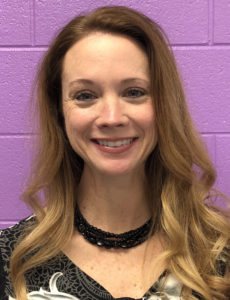
Jennifer Wilcox
Keeping reading instruction focused during small group rotations is challenging, especially when working with early elementary students. It becomes even more difficult when you need to gather skill-specific data on each student in that group, even though you are working with fewer students at a time on a targeted skill.
With more early elementary students starting the school year below grade level, instruction, assessment and data monitoring are crucial to the success of each student in the classroom. It can be overwhelming to see the diversity in skills that students can display in a single classroom. Fortunately, with careful planning, small group instruction can help teachers meet the diverse needs of many students.
One area of skills that need to be addressed in the early elementary years is phonological awareness, which refers to the ability to hear and manipulate spoken language. By developing phonological awareness, students begin understanding that spoken language is made up of individual parts, such as words, rhymes, syllables and sounds. Since the ability to read is not required, these skills can be targeted the very first day of school.
Because students begin school with such a wide range of skill levels, it can be a struggle to identify where to begin small group instruction. Assessment of phonological awareness skills is a critical step in planning appropriate small group instruction.
There are many assessments of phonological awareness skills available online at no cost. Most are quick, easy assessments that can be administered several times to keep a running record of student progress. Many school districts have developed their own phonological awareness skills test, too.
As a Read to Achieve teacher, the one I use is the Phonological Awareness Skills Test (P.A.S.T.). It is a free assessment that can be found on many online sites. The P.A.S.T has the phonological awareness skills broken down into each individual skill and arranged by level of complexity. Students are assessed until an area of concern is found based on the number of wrong answers and/or teacher judgment.
Planning Small Group Instruction
Once assessments are completed and student needs are determined, small groups can be formed based on targeted skills and levels of instructional intensity.
One thing to keep in mind when planning small group instruction is the grade at which each phonological awareness skill is considered to be developmentally appropriate. For example, phoneme substitution is considered to be a 2nd-grade skill. A kindergartener struggling with rhyming would need more intensive phonological awareness skills instruction than a kindergartener ready for phoneme substitution. Many of the online sites that have the P.A.S.T. also have a reference chart indicating the grade level at which a skill is considered developmentally appropriate.
With phonological awareness skills being so diverse, it is unlikely that all students in a group will be working on the same skill. For small group instruction to be effective and engaging, it is critical to find a way to keep track of targeted skills for students as well as their responses during that time. One way to do this is by creating a simple template that can be used when reading any kind of short children’s story.
The template that I use has five columns: page number, target words, target phonological awareness skill, target student and student response. It is versatile enough to be used with any book or story and any group of students. It also aids in monitoring progress for each student.
Preparing a phonological awareness skills lesson using a template only takes a few minutes. To start, look at the title of the story. Are there any questions targeting phonological awareness skills that can be asked about the words in the title? Then go page by page asking yourself the same question about the words on that page. Keep in mind the skills that the students in the small group need instruction on to guide your question formulation.
The following is text from the book “Bob the Dog” by Rodrigo Folgueira:
Title: Bob the Dog
Page 1: Mark and Bob the Dog were playing in the park one day.
Page 2: They were running and laughing so hard that they didn’t see the …
Page 3: GULP!
Page 4: … tiny little yellow bird.
Using the text above, here is an example of what the template could look like depending on student needs:
Phonological Awareness Skills Template
| Page Number | Target Words | Target Skills | Target Student | Response |
|---|---|---|---|---|
| Title page | Bob | Beginning Phoneme Isolation | Student C | |
| Title page | Bob, dog, bird | Beginning Sound Discrimination | Student A | |
| 1 | play-ing | Syllable Blending | Student B | |
| 1 | Mark, Bob | Rhyme Recognition | Student B | |
| 2 | that, they, see | Beginning Sound Discrimination | Student D | |
| 3 | (g) (u) (l) (p) | Phoneme Blending | Student A | |
| 4 | Yel-low (yel) | Syllable Deletion | Student D |
Implementation
How often you implement phonological awareness instruction using a template such as the one above is based on student needs. Lesson length also is based on student needs, with additional consideration being given to attention span of students in the groups. With student progress being kept on the template, it is easy to see where the previous day’s instruction ended.
My small group instruction focuses on phonological awareness skills toward the end of the school week. We read a new story on Monday, work on vocabulary and comprehension with that story on Tuesday and Wednesday, and then do our phonological awareness instruction on Thursday and Friday. This gives me enough time to analyze student responses and make adjustments for next week’s instruction.
Using a simple template can ease the stress of planning and implementing small group instruction while targeting specific skills in an effective and efficient way. Individual student needs will be met and instruction can be adjusted based on data yielded during that time. With focused small group instruction, student growth is immense.
Jennifer Wilcox is a Read to Achieve teacher at Lakewood Elementary School (Hardin County). She has been a teacher for 11 years. This is her fourth year as a Read to Achieve teacher. She spent seven years as a learning and behavior disorders teacher for 1st-, 2nd- and 3rd-grade students. Wilcox earned a bachelor’s in speech pathology from Western Kentucky University in 2000 and a master’s from Campbellsville University in learning and behavior disorders in 2008.



Leave A Comment